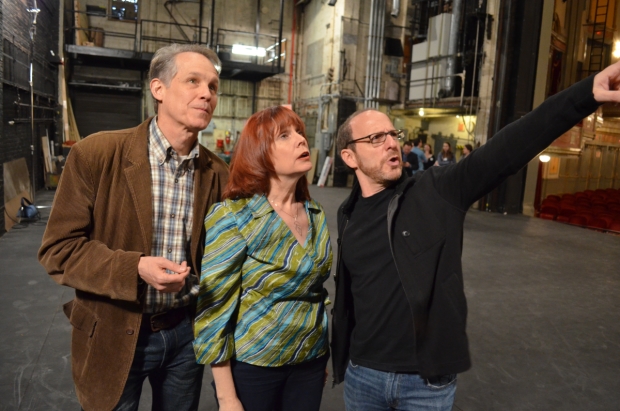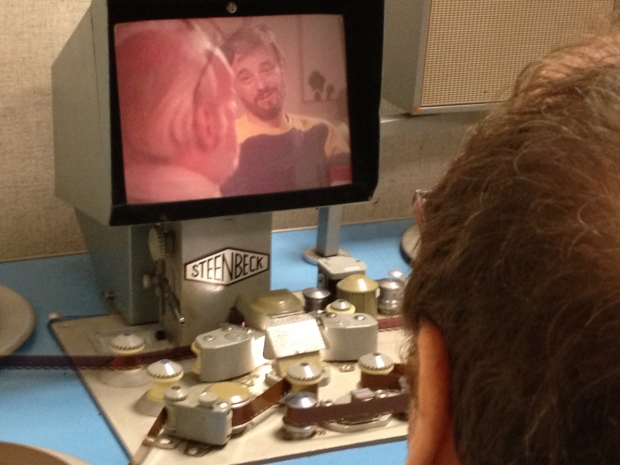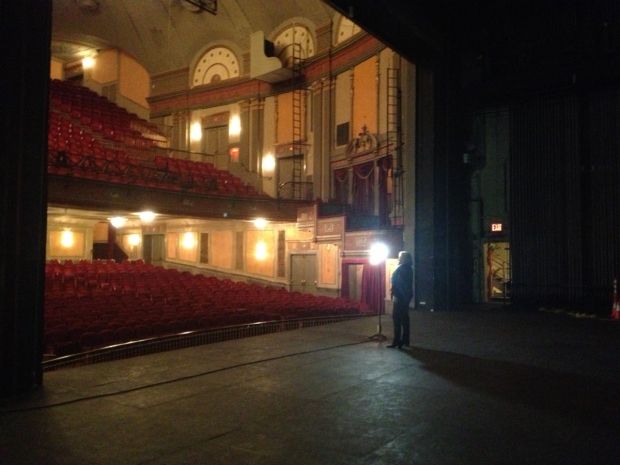Best Worst Thing That Ever Could Have Happened
Lonny Price explores the creation of the legendary musical ”Merrily We Roll Along” in his new documentary.

(photo provided by DKC/O&M)
In 1981, a crew from ABC News began documenting the creation of the new musical Merrily We Roll Along. Inspired by a rather obscure Kaufman and Hart play from 1934, the show was being created by two titans of the American musical theater: Stephen Sondheim and Harold Prince. It should have been the next big thing, but instead, it crashed and burned after 16 performances.
In many cases, a musical that flops will earn a small but dedicated fan base and never be seen again. Merrily was different though. Rather than become a cult classic, people now seem to regard it in the same breath as Sondheim’s biggest hits, and it gets produced, it seems, with just as much frequency. A sold-out reunion concert in 2002 prompted Lonny Price, one of the show's leading men, to create a documentary about his experience, using new interviews and Sondheim's great score, featuring tunes like "Old Friends" and "Growing Up," to explore the show's themes as they related to the original cast.
Price wove together those sources, and the original ABC footage (originally believed to have been destroyed) to create Best Worst Thing That Ever Could Have Happened, a masterful and moving documentary that opens in New York on November 18 and in Los Angeles on November 25. The result is not only one of the best theater documentaries ever made, but also one of the most outstanding explorations of the psychological anguish that comes with the loss of childhood dreams and innocence.
When Merrily was in its planning stages, it fit the oeuvre of Sondheim and Prince, two kings of the genre known as the "concept musical." The show, with a book by George Furth, explores how three best friends go on to become a trio of disenfranchised, cynical adults. In keeping with the original source material, and true to their experimental nature, the story was told in reverse chronology.

(photo provided by DKC/O&M)
As the ABC footage shows us, rehearsals were glorious: All of these kids, a group that included now-famous names like Jason Alexander and Tonya Pinkins, were working with people they revered as gods. But no one was prepared for the negativity they'd experience during performances, when they'd contend with script changes, a high-profile firing, negative reviews, and the eventual closure after 16 performances. (The experience was so difficult that it put an end to the longstanding partnership between composer Sondheim and director Prince.)
An unprecedented look at what it takes to create a musical from the ground up, Best Worst Thing feels like the cinematic equivalent of Everything Was Possible, Ted Chapin's now-iconic diary of working on Sondheim's Follies. The real gold is in the primary source footage, the clips of Sondheim performing songs for the first time, Prince telling the energized company that they got the part, and actual footage of the show itself, all unseen for the better part of 30 years.
But there's just as much exemplary material in the newly filmed interviews with the now-grown original company members, some of whom have gone on to fame and fortune (Alexander, for instance, became George Costanza on "Seinfeld"), while others gave it up entirely when they realized it was unsustainable. "One of the lessons of adulthood is disappointment," Abigail Pogrebin, an ensemble member in the show and now a noted writer, says as she reminisces about her experience. All of her colleagues seem to share the same ideology as they look back, as if having discovered that Sondheim and Prince were mere mortals signified the loss of their innocence.
Price himself transitioned from acting to directing, and he has since tackled every musical in the Sondheim canon, except Merrily. In the film's most moving sequence, he watches an interview he gave in 1981, where, as a 22-year-old, he talks about how his life can be complete now that he managed to get cast in a Sondheim-Prince show. At points like this in the movie, Best Worst Thing mirrors the bittersweet feeling of Merrily We Roll Along itself. As adults, their lives might not be like they were, but they realize that the good thing they had going, however briefly, lives on.

(photo provided by DKC/O&M)







